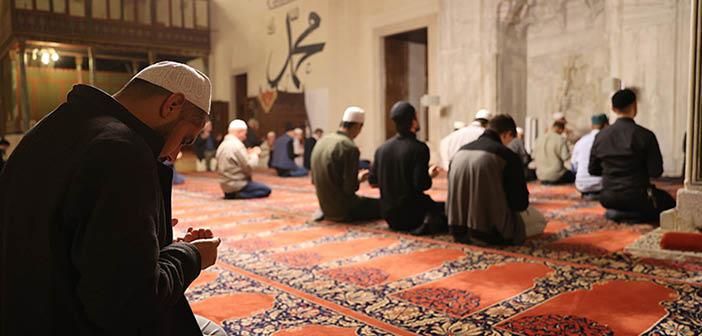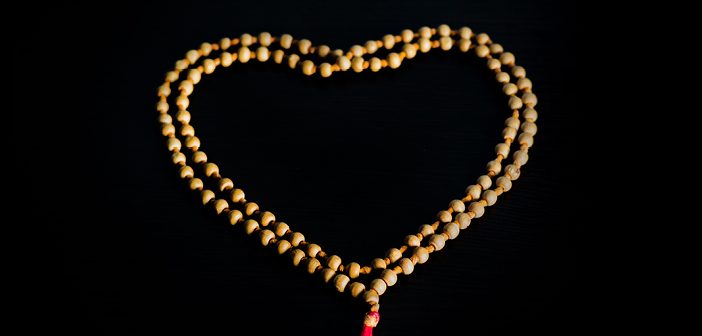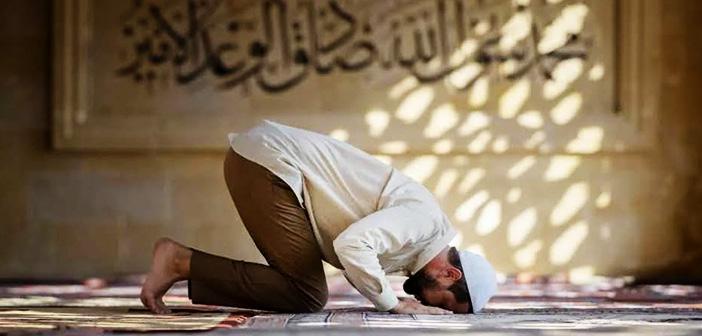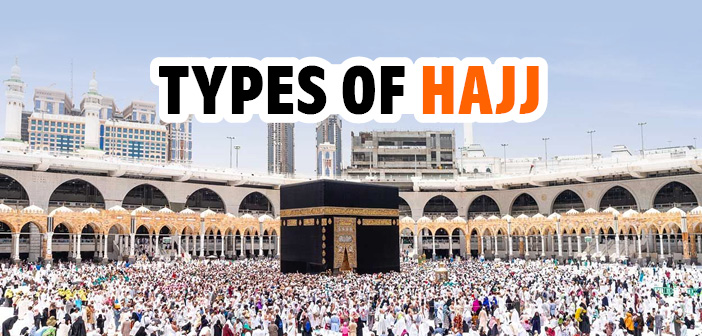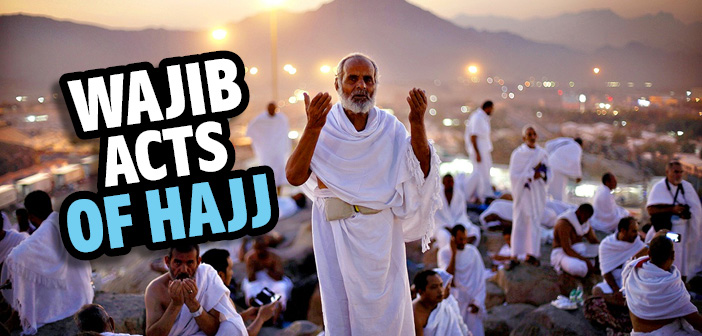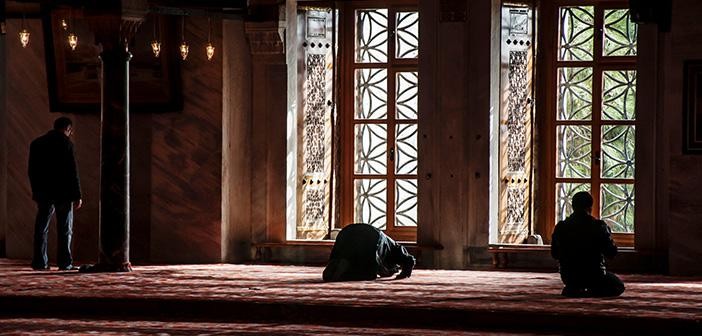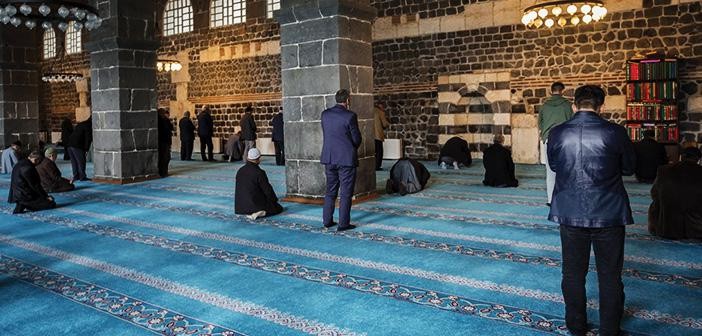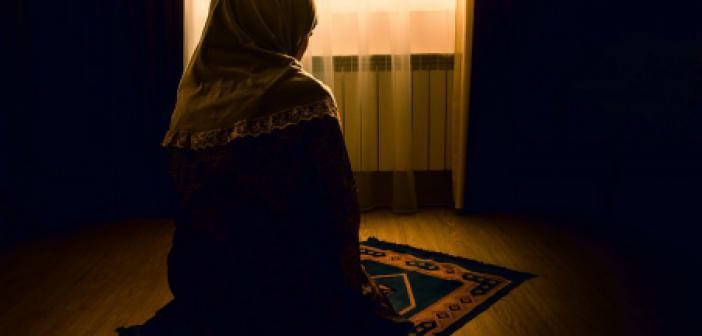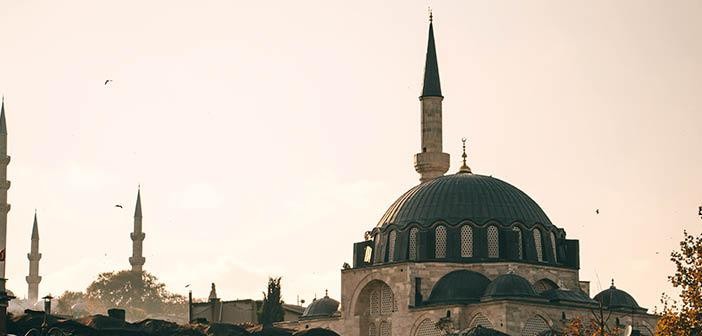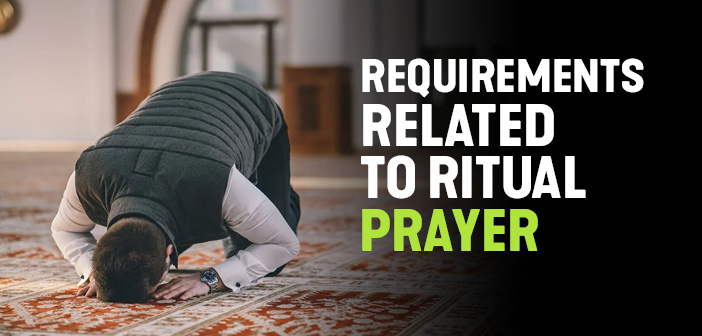
Requirements Related to Ritual Prayer
What are the requirements of ritual prayer? what is the condition of ritual prayer? What is the ritual prayer?
Associated with the ritual prayer are conditions, some of which must be fulfilled in order for the ritual prayer to be valid, and some of which must be fulfilled for it to be required. The various schools use different terms to describe these conditions; they also differ in the exact number of conditions belonging to each type.
The Malikis divide the conditions associated with ritual prayer into three categories: (1) conditions for its sole necessity; (2) conditions for its sole validity; and (3) conditions for both its necessity and its validity. The first category includes two conditions. First: The person concerned must have reached puberty and secondly, the person concerned must not be under compulsion to abandon the prayer. The second category, i.e. conditions for prayer’s sole validity, includes the following: (1) the person concerned must be free of ḥadath that is, the state of minor or major ritual impurity; (2) he or she must be free of khabath that is, physical impurities on his or her person, clothing, or place of prayer; (3) the person concerned must be a Muslim; (4) he or she must face in the direction of the qibla, and finally, (5) one’s private parts must be concealed. As for the third category, namely, conditions for both the necessity and the validity of the ritual prayer, they include the following: (1) the person concerned must have received the message of Islam, since otherwise, the ritual prayer is not required of him or her, and even if such a person did happen to pray, it would not be valid under such circumstances; (2) one must be in full possession of his or her mental faculties; (3) the time period for the prayer one intends to pray must have begun; ( 4) he or she must have access to at least one of the “two purifying agents”, that is, pure water or soil: (5) one must not be asleep or unaware of what one is doing; and (6) one must not be menstruating or experiencing postpartum bleeding.
The Shafiʿis divide the conditions associated with ritual prayer into only two categories, namely, conditions for its necessity, and conditions for its validity. The conditions for the prayer’s necessity are as follows: (1) The message of the Prophet must have reached the person concerned. (2) The person concerned must be a Muslim. Hence, according to the Shafiʿis, non-Muslims are not required to pray. Nevertheless, they hold that non-Muslims will be punished in the afterlife for neglecting the prayer over and above the punishment for their unbelief. As for those who renounce Islam, they are still held accountable for prayer based on their former state. (3) One must have full possession of his or her mental capacities. (4) One must have reached puberty. (5) One must not be menstruating or having postpartum bleeding. Finally, (6) one’s physical senses must be sound, even if one has nothing but hearing or sight. As for the conditions for prayer’s validity, they include the following seven: (1) One’s body must be free of both minor and major ritual impurity. (2) One’s body, clothing, and the place where one is praying must be free of khabath, that is, impure substances. (3) One’s private parts must be concealed. (4) One must be facing the qibla. (5) One must know or have good reason to believe, that the time period for the prayer one intends to pray has begun. (6) One must know how the prayer is performed, and finally (7), nothing must take place during one’s prayer that would invalidate it.[1]
Like the Shafiʿis, according to the Ḥanafis, the conditions related to ritual prayer are divided into two groups, some of which must be fulfilled before the ritual prayer or outside the ritual prayer and some of them must be fulfilled as part of the ritual prayer. The former requirements are called “conditions (sharṭ pl. ashrāṭ) of the prayer” because they must be performed before and as a preparation for the ritual prayer. The latter ones, on the other hand, are called the “essential pillars (rukn pl. arkān) of the prayer” because they form the main parts of the ritual prayer.
When one of these conditions and pillars is missing, the prayer is invalid and must be performed again. Apart from these, i.e. besides some situations that invalidate the prayer, there are certain acts and behaviors that even though not fulfilling them, do not invalidate the prayer, it decreases its merits and virtues. Such actions are called “makrūḥs (disliked acts) of the prayer”. Those who pray should avoid such acts. We will try to explain these below.
There are also conditions for the ritual prayer to be farḍ upon the person. These conditions consist of the person praying to be a Muslim, adolescent, and sane.[2]
Conditions For The Ritual Prayer To Be Fard Upon A Person
1) Being a Muslim: The ritual prayer is obligatory for all Muslim men and women. According to Ḥanafis, the prayer is therefore not obligatory upon disbelievers because nonbelievers are not regarded as being responsible for the details (furū’) of Islamic rules in this world and the hereafter. In fact, their punishment in the hereafter is the consequence of their disbelief. However, according to the majority of scholars, the people of disbelief are also subject to the detailed rules of religion. For that reason, they will be punished for this as well in the Hereafter.
A person who converts to Islam does not have to make up the prayers that he did not perform in his earlier life. Allah Almighty says: “Say to the Unbelievers, if (now) they desist (from Unbelief), their past would be forgiven them...”[3] The Prophet (saw) said, “Islam erases what was before”.[4] According to the Ḥanafis, it is therefore not necessary for an apostate to make up the prayers that he missed while being an apostate either. However, according to the majority of jurists, a person who leaves the faith and then converts back to Islam must make up the prayers that she or he missed while being an apostate as a punishment.
As for the obedience and good deeds carried out by the people of disbelief, if they die in disbelief, they will not benefit from such deeds in the Hereafter. In this regard, Allah Almighty says: “And We shall turn to whatever deeds they did (in this life), and We shall make such deeds as floating dust scattered about.”[5]
If a disbeliever who has observed obedience and carried out good deeds before, converts to Islam later, she or he will also receive rewards for her or his past good deeds. The evidence is the following hadith, “Hakim ibn Hizam (ra) asked the Messenger of Allah (saw): ‘Tell me about the things I did in my time of ignorance with the intention of worshipping. Is there any reward for me because of these?’ The Prophet said to him, ‘You have become a Muslim by keeping the good deeds you have done before.’”[6] The sound view on this issue is the following: If a person of disbelief does good deeds such as offering alms or doing favors to relatives, then accepts Islam and becomes a Muslim and dies as a Muslim, the rewards of all of his or her past deeds will be written for him or her.[7]
2) Having Reached The Age of Puberty: Prayer is not obligatory for children who have not yet reached the age of puberty. This is because the Messenger of Allah said, “The responsibility of three persons has been removed: from the mentally ill until he recovers, from the one who is asleep until he wakes up, and from the child until he reaches puberty.”[8] However, both boys and girls from the age of seven are commanded to pray in order to get used to the five-time ritual prayers.
The following is stated in a hadith,
“Command your children to pray when they become seven years old, and gently beat them for it (prayer) when they become ten years old, and arrange their beds (to sleep) separately.”[9]
The command in this hadith is for the parent, not the child himself. As a matter of fact, the following is stated in the Qur’an,
“Enjoin prayer on thy people, and be constant therein. We ask thee not to provide sustenance: We provide it for thee. But the (fruit of) the Hereafter is for righteousness.”[10], and “O you who believe! Save yourselves and your families from a Fire whose fuel is men and stones...”[11]
3) Being Sane: Reason is the foundation of Islamic obligations. Therefore, according to the majority of jurists, except for the Ḥanbalis, prayer is not obligatory for the mentally ill. The hadith stating that “the mentally ill are relieved of their responsibility until they get better” is proof of this fact.
Moreover, a person who cannot perform the obligatory prayer on time due to sleep has to make it up later. The following is stated in the hadith: “Whoever cannot perform a prayer on time due to oversleeping or forgetfulness, let him perform it when he remembers it.”[12] However, a drunk person must make up the obligatory prayer that he cannot perform on time.
The prayers missed by women who are menstruating or in postpartum bleeding during such times are excused. Such women do not have to make them up later. Even if the state of postpartum bleeding takes place due to abortion caused by physical affliction, drug use, or any such similar reasons, the ruling does not alter it.
According to the Ḥanafi school, if the excuses that prevent the prayer from being obligatory, such as minor age, mental illness, menstruation, and postpartum bleeding, dissipate within a prayer time, this prayer must be performed after the person in question carries out the major ablution. However, if excuses such as mental illness, menstruation, or postpartum bleeding occur within a prayer time, and the period of time passes after the prayer time begins, this prayer is not considered obligatory upon that person. This is because, according to the Ḥanafi view, the reason why the prayer becomes farḍ is the time that is adjacent to the performance of the prayer. If a person does not perform her prayer at the earliest time and delays it until the end of prayer time, the obligation of its performance becomes fixed at the last part of the time whereby one is able to perform the farḍ prayer. For this time is the reason for the obligation. According to the majority of the jurists, other than the Ḥanafis, if the above-mentioned excuses occur during the prayer time, if a time has passed at the beginning of the prayer time but enough time is left to perform the prayer together with ritual cleansing, then this prayer must be made up.[13]
[1] Jaziri, Abd al-Rahman, Islamic Jurisprudence According to the Four Sunni Schools, Fons Vitae, 2009, pp. 230-232.[2] Al-Shurunbulālī, Marāq al-Falaḥ, p. 28; al-Shirazī, Muhadhdhab, I, 53; Ibn Qudāmah, Mughnī, I, 396-401; al-Zuhaylī, al-Fiqh al-Islamī wa Adillatuh, 2nd ed., Damascus 1405/1985, I, 563 ff.[3] Al-Anfāl, 8: 38.[4] Aḥmad ibn Ḥanbal, IV, 199, 204, 205.[5] Al-Furqān, 25: 23.[6] Muslim, Imān, 194, 195, 196; Ibn Ḥanbal, III, 402.
[7] Al-Shawkanī, Nayl al-Awṭār, I, 300.[8] Al-Bukhari, Ṭalāq, 11, Ḥudūd, 22; Abū Dawūd, Ḥudūd, 17; al-Tirmidhī, Ḥudūd, 1.[9] Abū Dawūd, Ṣalāh, 26; Ibn Ḥanbal, II, 180, 187.[10] Ṭa Ha, 20: 132.[11] Al-Taḥrīm, 66: 6.[12] Abū Dawūd, Ṣalāh, 11; Ibn Maja, Ṣalāh, 10; al-Nasā’ī, Mawāqīṭ, 53.[13] M. Abu Zahra, ʿUṣūl al-Fiqh, p. 31, 32, 56 ff.; Hamdi Döndüren, Delilleriyle İslam Hukuku, Istanbul 1983, p. 122 ff.; Al-Zuhaylī, ibid, I, 567, 568.
Source: Basic Islamic Principles (ilmiḥal) According to the Four Sunni Schools With Evidence From The Sources of Islamic Law, Prof. Hamdi Döndüren, Erkam Publications


